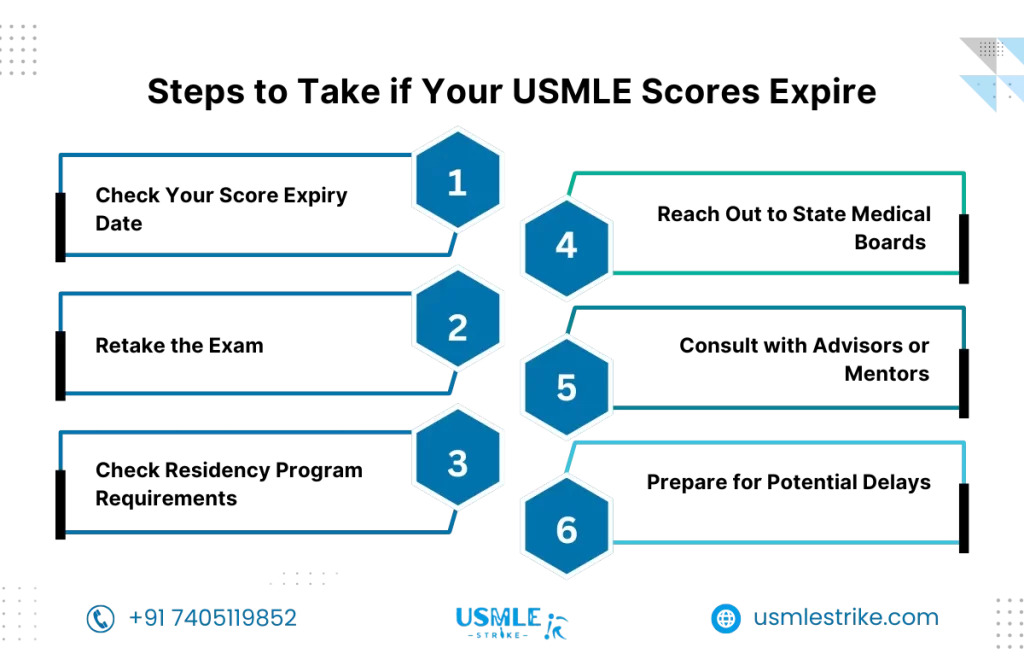The USMLE (United States Medical Licensing Examination) is a crucial step for international medical graduates aiming to practice in the United States. Understanding the validity period of USMLE exams is essential for planning your medical career. Many aspiring doctors often ask, “How many years is USMLE valid?” The validity of your USMLE Step 1, Step 2 CK, and Step 3 exams is an important factor to consider as you move through your medical journey.
This post will answer that question and guide you through the USMLE validity period for each exam, how to track your progress, and how to stay on track with your timeline. We will also explore what happens if your exams expire and what you can do to stay updated on USMLE policies.

Understanding the USMLE Valid Period
The USMLE is not valid forever. Each part of the exam has a specific time frame during which you must complete all steps. The USMLE validity period ensures that you stay on track with your medical education. But how many years is USMLE valid? This depends on the specific exams you take, and it’s important to know the timeframe for each part. If you fail to finish all the steps within this time, you may need to retake certain exams.
USMLE Step 1 & Step 2 CK Validity
The USMLE Step 1 and Step 2 CK exams are typically valid for seven years. If you pass one of these steps but do not complete the entire exam sequence within this period, you may need to retake the previous exams. This is why it’s essential to understand how many years is USMLE valid, especially for international students and doctors planning to complete their exams in sequence. The USMLE Step 1 & Step 2 CK validity is particularly crucial because, without completing both steps, you cannot move forward to Step 3. Make sure to complete both steps within the seven-year window to ensure your progress remains on track.
USMLE Step 3 Validity
The USMLE Step 3 exam has a different validity period than Steps 1 and 2. Generally, Step 3 must be completed within a seven-year period following the completion of your first Step 1 exam. However, the exact validity can depend on the specific regulations of the medical board. How many years is USMLE valid? The period for Step 3’s validity is typically seven years from the completion of Step 1. It’s vital to stay aware of this timeline to avoid complications in your licensing process.
What Happens if Your USMLE Exams Expire?
If your USMLE exams expire before you complete all the steps, you may need to retake the previous exams. This is a critical issue for medical students, so it’s important to stay within the validity period. If your Step 1 or Step 2 exams have expired, you might have to retake those before advancing to Step 3. This means that the clock is ticking, and understanding “How many years is USMLE valid?” can help you avoid unnecessary delays. To prevent this, track your progress carefully and plan your exam timeline to meet all deadlines.
How to Keep Your USMLE Progress on Track
To ensure your USMLE progress stays on track, you need to stay organized and plan your exam schedule carefully. Keep track of important dates such as when you took Step 1 and Step 2 CK. As you approach the seven-year mark, it’s crucial to prepare for Step 3. Understanding how many years is USMLE valid can help you avoid unnecessary stress and retaking exams. Set reminders, create an exam timeline, and follow up with your medical school or the USMLE website for updates on your specific timeline.
Plan Your Exam Timeline Carefully
Planning your exam timeline carefully is crucial for success in completing the USMLE. By understanding how many years is USMLE valid, you can pace yourself to finish the exams within the validity period. Start by scheduling Step 1 as early as possible, and then plan Step 2 CK and Step 3 accordingly. Planning ahead helps you manage your preparation time and prevents last-minute rushes.
Schedule Step 3 Early
Scheduling your Step 3 exam early is a smart move if you’re close to finishing your other exams. The earlier you take Step 3, the more time you’ll have in case you need to retake any part of the exam. Understanding the USMLE valid period helps you recognize the urgency of completing all parts of the exam within seven years.
Track Your Progress
Tracking your progress is vital when preparing for USMLE exams. Create a checklist for all the steps, including deadlines for each exam. Stay on top of your timelines so that you don’t miss any deadlines, which can affect the validity of your USMLE results. Tracking helps you answer the question, “How many years is USMLE valid?” and plan accordingly.
Stay Updated on Policies
USMLE policies and rules can change over time. Stay updated on the official USMLE website and medical school announcements to ensure you are aware of any changes to the exam validity period. This will help you avoid any surprises as you move through your testing process.
What If You Need More Time?
If you need more time, it’s essential to communicate with the USMLE or the Federation of State Medical Boards (FSMB). In some cases, extensions may be possible, but this depends on individual circumstances. Stay proactive and ensure you know the policy for requesting extensions.
Contact the USMLE or FSMB
If you have questions about the validity period of your exams or need guidance on your timeline, don’t hesitate to reach out to the USMLE or FSMB. These organizations can provide clarity on “How many years is USMLE valid?” and help you stay on track.
Focus on Completing Exams in Sequence
Focus on completing each exam in sequence. This means finishing Step 1, followed by Step 2 CK, and then Step 3. Delays in one step can affect the validity of the others, so stay organized and plan accordingly to ensure everything is completed within the set timeline.
Steps to Maintain Valid USMLE Scores
To ensure that your USMLE scores stay valid and are recognized by residency programs or licensing authorities, follow these essential steps to understand how many years is USMLE valid.
- Complete All Steps Within the 7-Year Period: Ensure that you take and pass USMLE Step 1, Step 2 CK, and Step 3 within a 7-year window. The validity period starts from the date you passed your first exam, and all steps must be completed before this period expires.
- Apply for Residency Early: Many applicants wonder about the USMLE Valid Period when applying for residency. It is important to submit your applications while your scores are still valid. Start preparing early and apply as soon as possible to avoid any issues with outdated scores.
- Check with Licensing Authorities: Stay informed about the requirements for medical licensing and residency programs in the U.S. Licensing bodies and residency programs may have varying policies on USMLE score validity. Confirm that your scores will still be accepted well within the valid period.
- Retake the Exam If Necessary: If your USMLE scores expire, you may be required to retake the exam to regain eligibility. Be proactive about scheduling your retake to ensure that you remain competitive in the application process.
Why Does USMLE Score Validity Matter?
Understanding the USMLE Step 1 & Step 2 CK Validity is crucial for several reasons. Here’s why the validity period matters:
- Residency Applications: USMLE scores are an essential part of residency applications, and many programs will only accept scores that are within the valid period. If your scores expire, you risk losing eligibility for applying to some of the best programs in the U.S.
- Licensing Requirements: Medical boards in the U.S. use your USMLE scores to determine whether you meet the eligibility requirements for licensing. An expired score might lead to complications in obtaining your license, delaying or preventing your ability to practice medicine.
- Career Opportunities: Your scores reflect your competency and readiness for the next step in your medical career. An expired USMLE score may hinder your ability to secure a job, fellowship, or other advanced educational opportunities in the U.S.
- Tracking Your Progress: Keeping your scores within the valid period ensures that you remain on track with your professional development. If you delay taking exams or fall behind in meeting deadlines, it may result in needing to retake exams and re-entering a competitive field.
Conclusion
The USMLE exams are vital steps for international medical graduates aiming to practice medicine in the United States. Knowing “How many years is USMLE valid?” is essential for planning your timeline and ensuring that you complete all steps within the validity period. By tracking your progress, scheduling exams carefully, and staying updated on policies, you can make sure that you’re on the path to success. Following these steps will help you avoid delays, retakes, and stress, allowing you to focus on your medical career.





